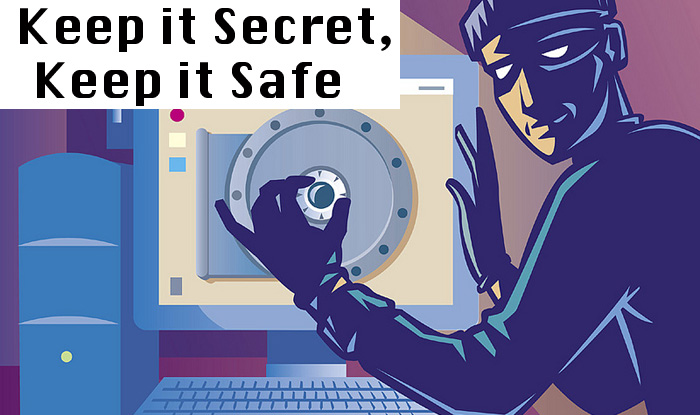So, do I have your attention now? How many of you knew where that quote (“Keep it Secret, Keep it Safe”) came from, and just wanted to read an article about “Lord of the Rings?” 🙂
Sorry to disappoint, but this post is all about Cyber Security. I know, boring stuff, but October is Cyber Security Awareness Month, and helping people use technology, and use it safely, has been my passion for a while now.
And, let’s face it, today so much of our lives are connected to some sort of digital device, as well as the information on them; it makes sense to put some protections in place to keep your information secret, and to keep it safe. That’s why I partnered with the Town of Cary Police Department to recognize and support October as Cyber Security Awareness Month, and also why our Police department works hard to protect you with an impressive Cyber Crime unit.
First, some chilling numbers
Whether you are at work, at home, school – every part of our lives now has a connection to the Internet.
Did you know that…
– Someone becomes a victim of cyber crime every 18 seconds
– Cyber crime costs an average of nearly $200 per victim
– Mobile device vulnerabilities doubled in 2011 from 2010
– 40% of social network users have been victims of cyber crime on a social networking site
– 1 in 4 people received notification by a business, online service provider, or organization that their personally identifiable information (password, credit card number, email addres, etc.) was lost or compromised because of a data breach
(Source: Symantec and National Cyber Security Alliance)
What can you do?
- STOP. THINK. CONNECT. This should really be your mantra. Think of it like “stop, drop and roll” as we learned from our firefighters when we were kids. In this case it’s a quick way for you to be aware of where you are “clicking” while surfing the web. Take a look at the Stop. Think. Connect. Website for more information.
- Protect before you connect, keep your machine clean.
- Make sure your software is up-to-date, including your operating system, security software and web-browsers. That’s your first defense against online threats and viruses. (Automate it, if you can!)
- Be careful of what you PLUG IN to your machine – if you don’t know where that USB device came from, don’t plug it into your machine. You never know what viruses or malware is lurking on a rogue USB key.
- Keep it Secret & Safe — don’t use simple or lazy passwords– make them long and strong. Use CAPITAL and lowercase letters with numbers and special symbols. (Please, no dog, cat or child names)Use unique passwords for accounts: Don’t use the same password for different accounts. If they are hard to remember, try using a Password management program like 1Password, LastPass, KeePass or others.
- Own your online reputation – make sure to review your privacy and security settings on social sites like Facebook, Twitter, etc. Know how, and with whom you are sharing information.
- Connect Safely and when in doubt, throw it out.
- Be careful of links – whether they are in email, tweets, posts and in ads – it is a common way for cyber criminals get into your computer.Know your hotspot – don’t jump on a hotspot just because it’s available. Make sure to adjust your security settings, and avoid sensitive transactions while on a network you don’t know.
- Turn off file sharing and network discovery when you are on a public wirless network, these can put your device at risk. (This is under the Control Panel>Network and Internet> Network and Sharing Center on Windows, and under System Preferences>Sharing on Mac OSX)
- Shopping online? Always check for SECURE services – a little gold lock at the bottom of the page shows you that you are on a secure site. The site should have URL that starts with https:// instead of just http://)
- Back, Back, Back it up: Protect your valuables by having a backup, that includes your music, pictures, and other documents. Make sure to store it separately.
Be careful
With more than 50% of Cary citizens owning Smartphones, and a quarter of American adults on Tablet computers , the need for being vigilant about your online safety has truly gone mobile. Make sure to keep these safety ideas in mind as you surf and shop online.
For more information check out some of these great websites:
- FTC OnGuardOnline.gov
- Stay Safe Online (National Cyber Security Alliance)
- Stop. Think. Connect.
- Family Online Safety Institute
- ———————————————
Featured photo by Elhombredenegro
